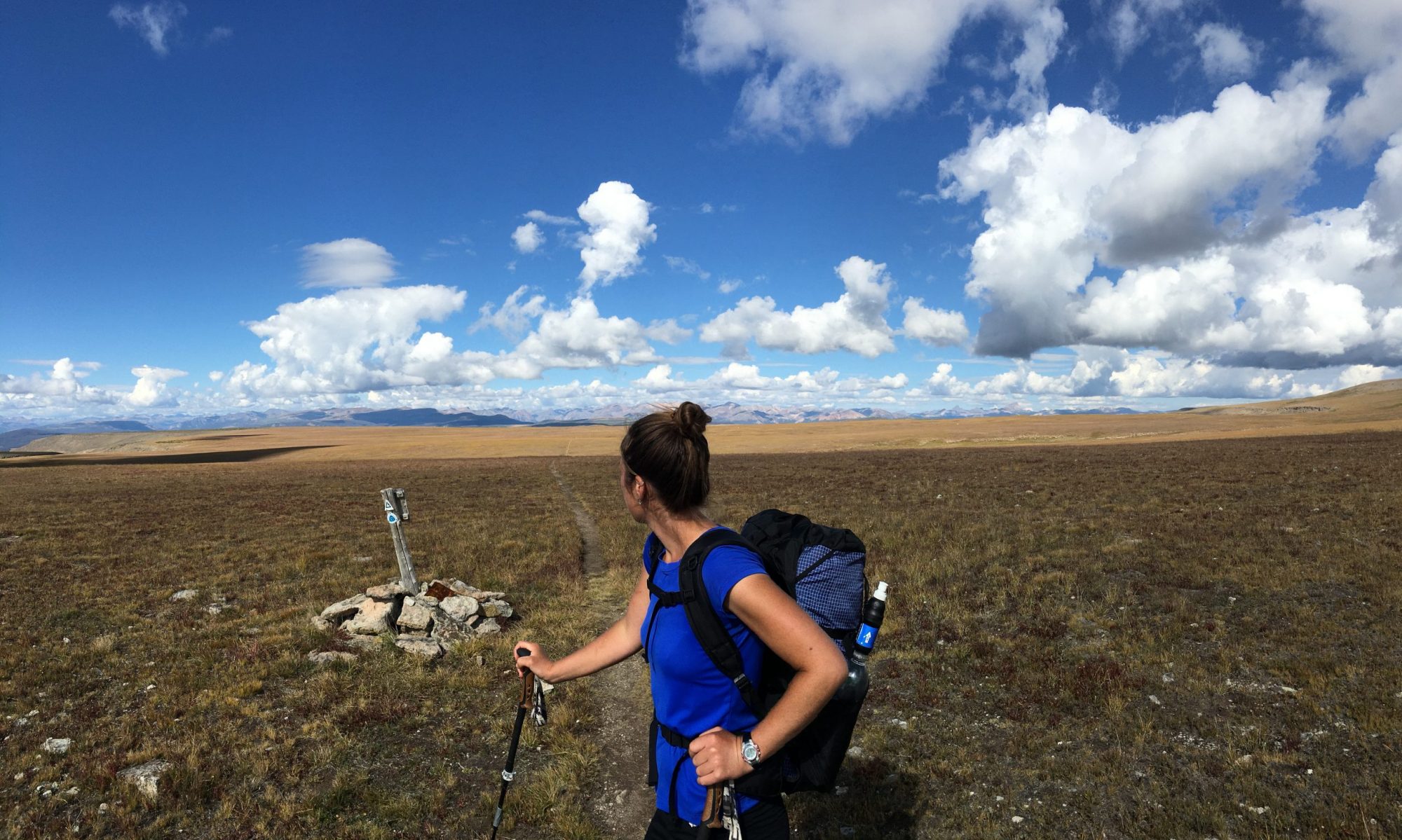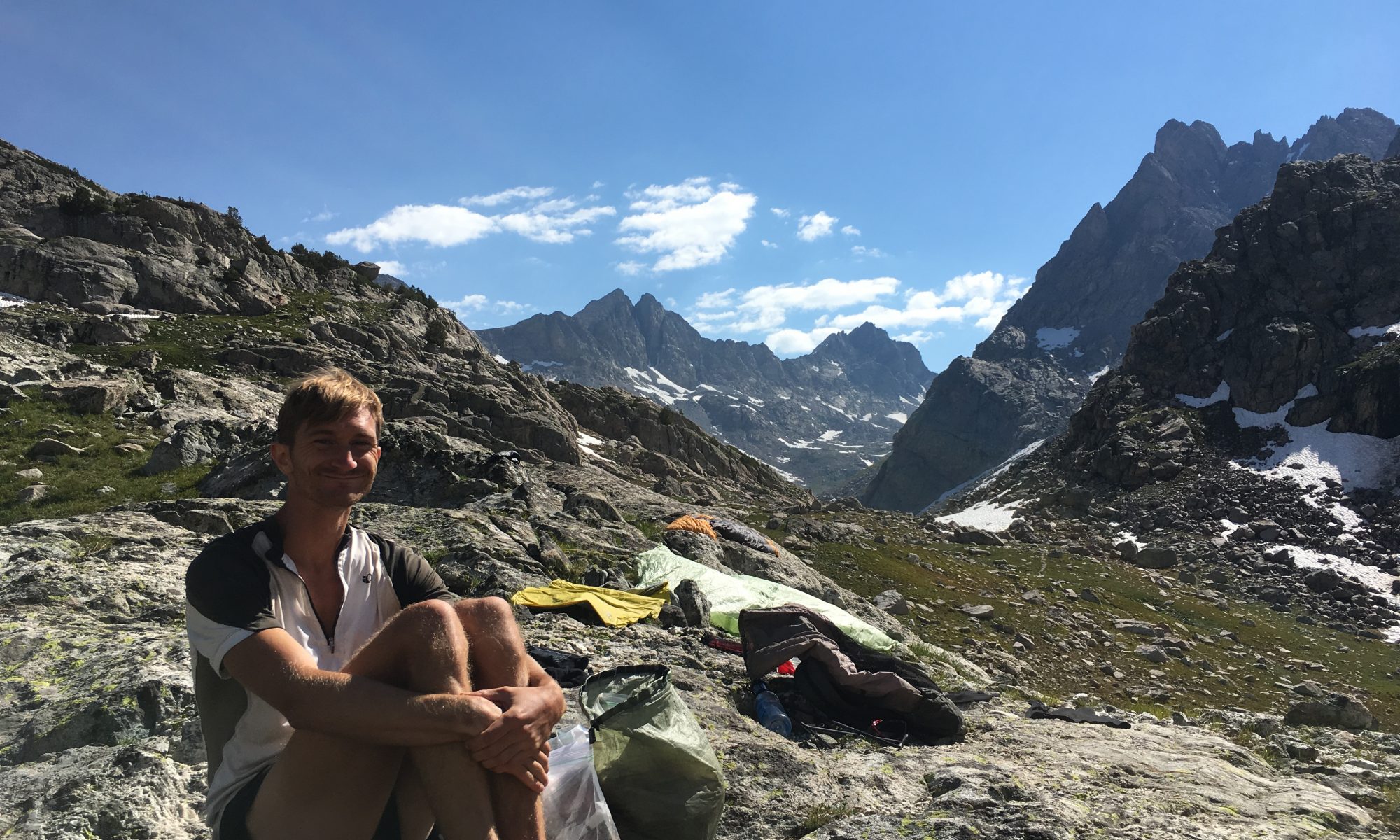So you’ve got a thru-hike planned for this summer and you’re deep in preparation mode as hikers are wont to do in the cold, dark months of winter. But it feels like there are a million pieces to get in place. Where do you even start? What are you forgetting? As you dream of alpine lakes and sunshine, here are five key steps to consider before embarking on your adventure.
This post is designed to provide a very broad overview of the planning process and some things that you should likely be thinking about. Each of these topics alone could be an entire article (and they may be at some point).
Here’s what I’ve learned from ~5000 miles of backpacking and planning multiple thru-hikes.
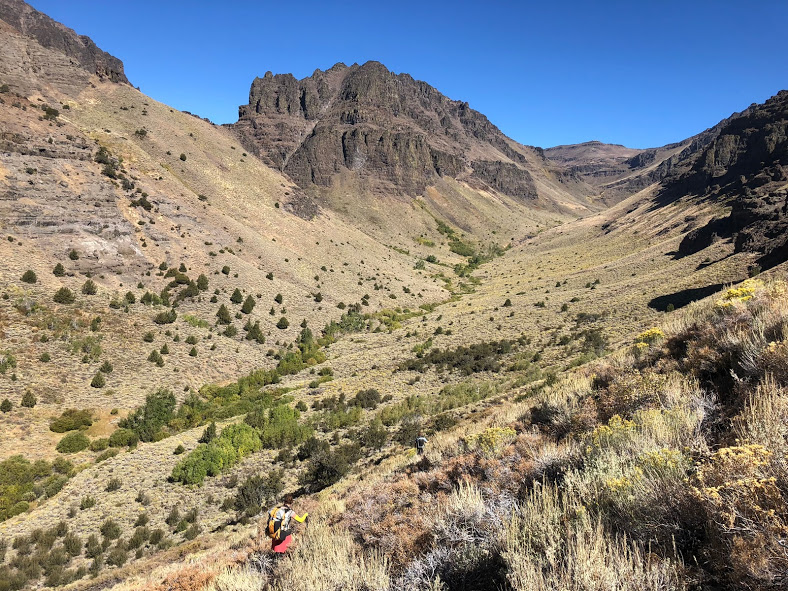
Master Your Mindset
- Commit. You can’t be wishy-washy. You must commit in your heart to what you intend to achieve because thru-hikes don’t just happen accidentally. You can’t go out with the mindset of “well, I’ll give it a shot and see what happens”. That rarely works. Yes, be flexible and fluid, but also know your end goal. That (not fully in) was my mindset when a friend asked me join him on his thru-hike of the AT. I figured I’d tag along, and who knows, maybe I’d thru-hike. Of course, I didn’t. Shit hit the fan in my off-trail life and I had to bail early. Compare that with my PCT hike, where I went in with the mindset of “I will do everything in my power to thru-hike this trail”. And I did. Because I’d been mentally preparing for months.
- Take personal responsibility. Commitment means taking personal responsibility for the results in your life. This means you take responsibility for your thoughts, your feelings, your words, and your actions. You stop blaming and complaining and outsourcing your happiness to the control of anyone other than yourself. When you fully step into this mentality, it’s incredibly liberating. You realize you create the results you desire and you get caught up a lot less by all the road bumps along the way.
- Know your WHY. To stay motivated over the long haul, have a clear sense of why you’re out there. If you know your why, when the going gets tough (and it will), you’ll find reserves of energy and perseverance you didn’t even know you had.
- Anticipate challenges and how you will work through them. Know that you’ll miss your loved ones, you’ll be physically & emotionally uncomfortable (frequently), things won’t work out as you planned, and you may be alone more than you’re used to. Be mentally prepared for all of this. But also know that your time spent on your adventure will likely be deeply transformative and nourishing to your soul, so prepare for that too 🙂
- Spend your energy on the right things. Preparation begins in the mind, but it doesn’t end there. It helps to prepare your physical body as well. Many hikers spend far too much time obsessing over gear, food, weather and other minutiae, and while those things have their importance, it’s physical preparation (more on that in a moment) and mindset that will result in a successful journey.
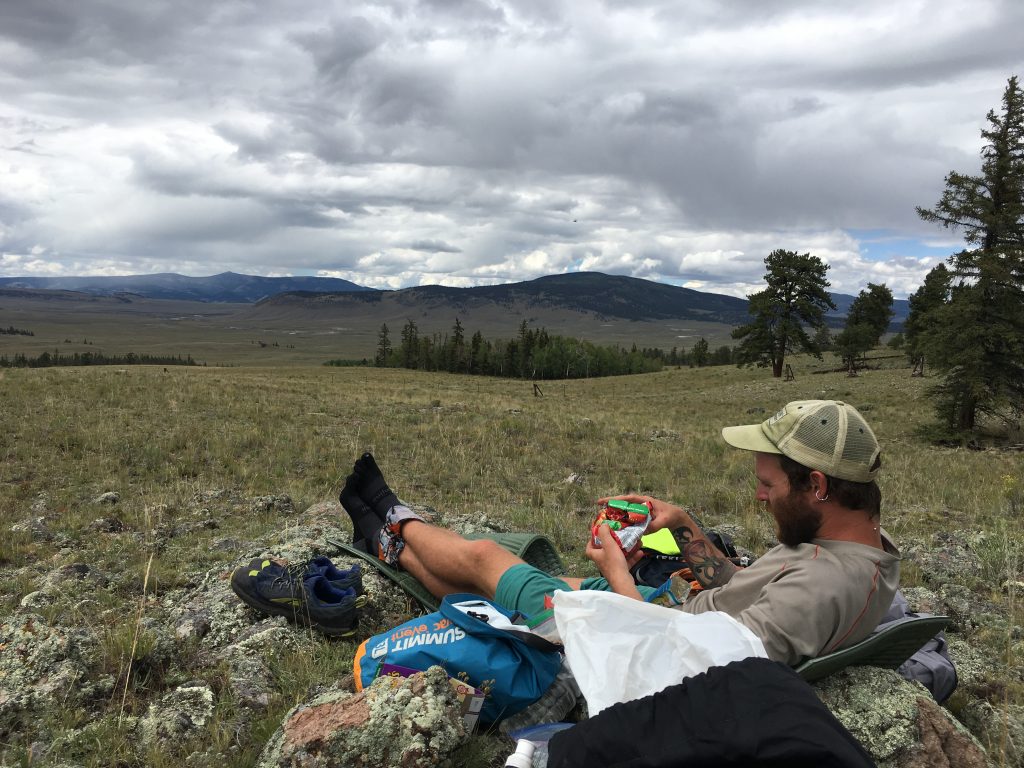
Start Planning. All the Planning.
- Dial in your budget. Running out of money is one of the top reasons hikers quit long trails. That’s unfortunate because it’s totally preventable. There are lots of planning resources out there. Know your budget. Start saving months in advance.
- Get the maps you need and know how to navigate. Do your research to determine which maps you need. If you’re hiking one of the triple crown trails, the ATC, PCTA, and CDTC are good places to start. Learn how to navigate here.
- Know the skills you’ll need for your chosen adventure and prepare accordingly with classes, practice, and proper gear. Will there be snow travel? Desert travel? Off trail navigation?
- Learn Leave No Trace ethics and practice them on trail. Also learn about proper town etiquette and practice that as well. Remember, that you’re an ambassador of the trail.
- Make an itinerary and share it with loved ones. You’ll almost certainly stray from it, but it’s good to have a general outline of where you’ll be and when. Learn more about how to stay safe in the backcountry.
- Talk with someone who has done what you’re planning to do. This can help you spot holes in your preparations and relieve a lot of anxiety (and get you even more excited). The American Long Distance Hiking Association-West Rucks are a fantastic opportunity for this. You can also read blogs and visit forums, but be careful with that. It can be a total time suck and, remember, everyone will have an opinion, but that doesn’t mean their advice is right for you.
- Plan, but don’t over-plan. Realize that life on trail is no different than life at home and that things happen which you can’t predict. Stay fluid and flexible and willing to roll with whatever comes your way. Remember that you’re capable and nearly everything is figure-out-able. One of the greatest gifts of the trail is the self confidence gained from realizing that you can handle whatever comes your way, and that in most cases, it’s not that big of a deal.
- A lot of anxiety comes from fears in the back of our mind. Because we haven’t articulated those concerns, they feel nebulous and give us a sense of dread. Try ‘worst case scenario’ thinking. For example, say your resupply box doesn’t show up at your town stop. Now what? What’s the worst case scenario? What would you do to fix the situation? You’ll likely come up with a solution. Play out these scenarios ahead of time and you’ll often find that you’re overemphasizing the negative consequences in your mind and it really wouldn’t be that bad.
Dial In The Gear
- Proper gear is worth the investment. I’m not saying you need to spend a fortune, but you do need to find gear that’s durable, functional, and fits your body. I’ve made the mistake of carrying a backpack that didn’t fit me properly, but it was given to me, so I went with it. That resulted in months of back pain that didn’t resolve for weeks, even after my hike was over. Silly mistake. You don’t need to obsess or spend months shaving ounces and researching fabrics, but do make informed choices and purchase decent gear. In the same vein, replace old or worn out gear. This is essential in avoiding injury.
- Once you’ve acquired your gear, field test it. Know how to use it. Go on a shakedown hike. You may find there’s something you need that you don’t have. Or more likely, things you have which you don’t need. Be selective. This will all be carried on your back for mile upon mile and a heavier pack means more wear and tear on your body.
- Get a pack shakedown. Find a seasoned hiker to look over your gear. They may see something you don’t. Having an outside opinion can help you evaluate your choices.
- Choose what’s best for you. What works for your hiking buddy or for the guy in the forum or for your sister may not be what works for you. Test your gear and choose what’s best for YOU. After all, you’ll be the one using it for months.

Strategize Your Food/Resupply
- Food is a deeply cherished topic of hikers, and rightfully so as you could be burning 4000+ calories daily. There’s so much information available on choosing and planning food for a thru-hike and ultimately, it’s a highly individual choice.
- That said, here are a few considerations: Decide whether you want to send resupply boxes or buy along the way or a combination of both. Plan ahead so you know where you can buy in town and where you’ll need to send a box. Focus on eating as clean as you can. You’re putting your body under tremendous strain, so give it the best fuel possible. You’ll be able to hike farther with less illness, injury, and inflammation.
- Here are a few resources to get you started: How to Eat Healthy on a Thru-hike, Fueling a Healthy Adventure on a Budget, The Danger of Fueling with Faux Foods, How to Create a Healthy Resupply in a Tiny Town, and my Resupply Template for the Oregon Desert Trail.
- For the step by step guide to figuring out your calories, macronutrient ratios, and how to create meals and meal plans, this is the best resource.
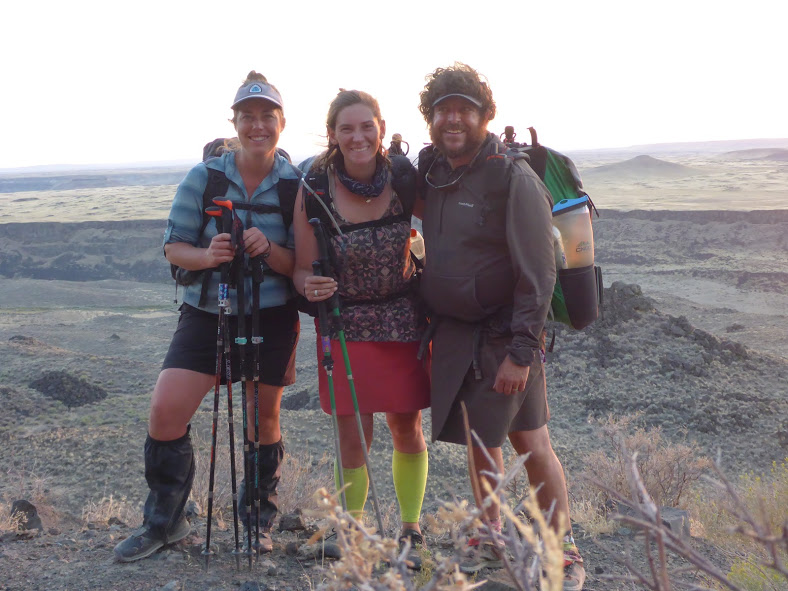
Optimize Your Health
- Physical preparation is essential to a smooth transition to full time exercise. You’ll be hiking for 8-12 hours per day. The body is incredibly adaptable, but to avoid injuries, it’s wise to prepare the body for this endeavor. There are several training plans on the internet. There’s also an entire 5 lesson module devoted to developing a personalized training plan in our online course Adventure Ready. Suffice it to say, physical preparation is a good idea.
- Get as healthy as you can before your hike to build resiliency and to get the most out of your experience. Don’t just survive out there. Instead choose to THRIVE. Backpacking can put a tremendous strain on the body and a long hike is incredibly depleting. Illness and injury take hikers off the trail every season. Give yourself the best possible chance of success by getting your health dialed in for a successful adventure.
- We cover all of this in the online course Adventure Ready. It’s the ultimate road map to optimizing your energy and endurance so you can take on your adventure with confidence and stay healthy to the finish line. You’ll learn mastering your mindset, eating for endless energy, optimizing gut health, preparing yourself physically, hacking sleep for better performance, and managing stress so it doesn’t undermine all your other efforts.
I hope this gave you some ideas and helped fill in gaps in your planning process. What did you find most helpful here? Which of the steps do you want to hear more about? Leave a comment below!
